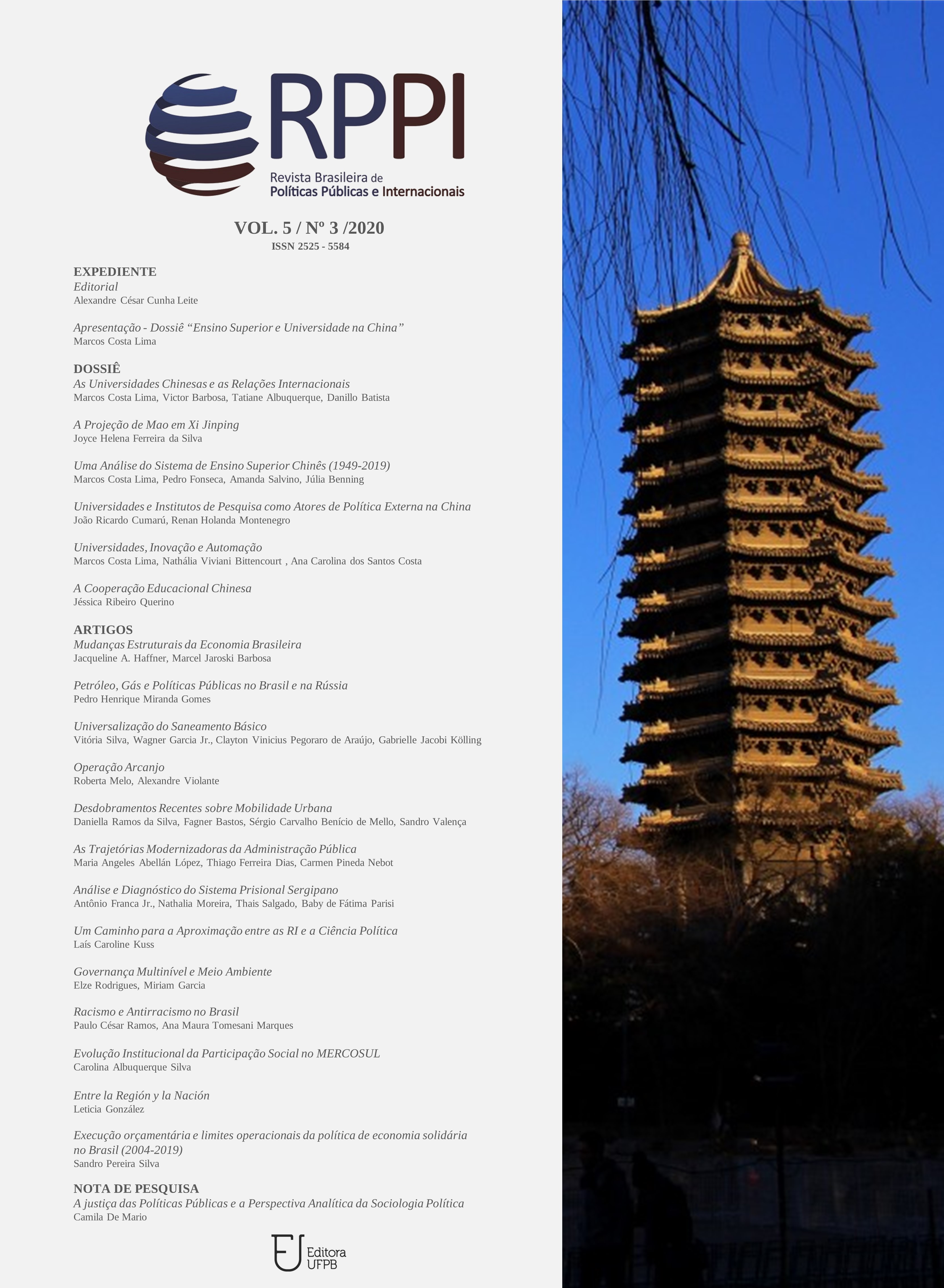Universalização do Saneamento Básico
a crise dos direitos sociais e os desafios regulatórios no Brasil
DOI:
https://doi.org/10.22478/ufpb.2525-5584.2020v5n3.51806Palavras-chave:
Direitos Sociais, Regulação, Saneamento BásicoResumo
Este artigo analisa alguns dos mecanismos de incentivo econômico do novo marco regulatório do saneamento básico no Brasil, aprovado no primeiro semestre de 2019. É apresentada a situação real de milhões de brasileiros que têm os seus direitos sociais mitigados pelas falhas da atual regulação econômica, não atendendo as demandas básicas da população, e colocando em xeque direitos sociais garantidos constitucionalmente. A questão norteadora desta pesquisa é: quais as principais mudanças do novo marco regulatório do saneamento básico que promete maior eficiência na sua universalização? Para respondê-la são utilizados dados do IBGE, estatísticas do Instituto Trata Brasil, a literatura econômica e jurídica acerca dos aspectos da regulação e dos direitos sociais no Brasil e dos marcos regulatórios do Saneamento Básico (Lei 11.445/07 e PLC 3261/19). O presente artigo utiliza o método comparativo para analisar as principais mudanças regulatórias advindas da nova legislação (PLC 3261/19) em comparação com o marco regulatório atual (Lei 11.445/07). Finalmente, a pesquisa apresenta dados estatísticos que mostram a difícil realidade de milhares de brasileiros que ainda não têm acesso à água tratada e nem ao tratamento de esgoto em suas residências apesar de todas as garantias constitucionais que fundamentam a República Federativa do Brasil.
Downloads
Downloads
Publicado
Edição
Seção
Licença
Autores que publicam nesta revista concordam com os seguintes termos:- Autores mantém os direitos autorais e concedem à revista o direito de primeira publicação, com o trabalho simultaneamente licenciado sob a Licença Creative Commons Attribution que permite o compartilhamento do trabalho com reconhecimento da autoria e publicação inicial nesta revista.
- Autores têm autorização para assumir contratos adicionais separadamente, para distribuição não-exclusiva da versão do trabalho publicada nesta revista (ex.: publicar em repositório institucional ou como capítulo de livro), com reconhecimento de autoria e publicação inicial nesta revista.
- Autores têm permissão e são estimulados a publicar e distribuir seu trabalho online (ex.: em repositórios institucionais ou na sua página pessoal) a qualquer ponto antes ou durante o processo editorial, já que isso pode gerar alterações produtivas, bem como aumentar o impacto e a citação do trabalho publicado (Veja O Efeito do Acesso Livre).




_.jpg)






.png)


.jpg)
_.png)
